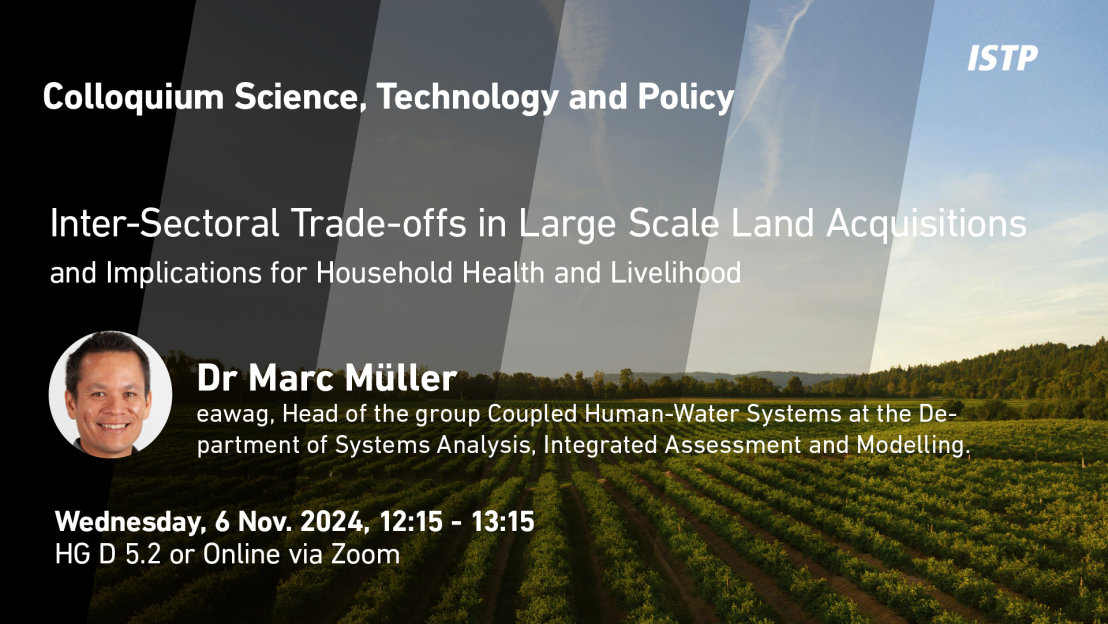Colloquium: Dr Marc Müller
Wednesday, November 6, 2024, at 12.15 - 13.15
HG D 5.2 or online, Zoom | Sign up here
Inter-Sectoral Trade-offs in Large Scale Land Acquisitions and Implications for Household Health and Livelihood

The recent two decades have marked a significant increase in transnational land investments, fueled by growing demands for food, water, and energy. This global land rush, primarily affecting rural areas in low and middle-income countries, where it often contributes to ongoing transitions from smallholder farming into large-scale commercial agriculture. A key aspect of this transition is the inter-sectoral trade-offs at the nexus of food, water, energy, and the environment, where global demands intersect with local health, livelihoods, and ecosystems. Most existing studies have focused on individual impacts of land acquisitions on these sectors, but a comprehensive understanding of (i) the trade-offs across sectors and (ii) their implications for household health and livelihoods is lacking. Our study addresses these gaps, using a clustering technique to analyze a unique dataset of over 350+ georeferenced land deals. This method helps categorize the interplay and trade-offs between the impacts on food, energy, water, and the environment. By linking these trade-offs to specific characteristics of land deals, we identify distinct archetypes, each necessitating tailored policy responses. The extent of household health and livelihood impacts varies across these archetypes. We assess these implications using data from approximately >2 million households from >20 countries. This novel approach, merging a global analysis of sectoral impacts with local household effects, aims to provide insights for targeted policies to ensure a sustainable and equitable agrarian transition.
About Dr Marc Müller
Dr Marc F. Müller leads a research group on Coupled Human Water Systems at Eawag’s Systems Analysis, Integrated Assessment and Modelling (SIAM) Department. With an educational background from EPFL, UC Berkeley, and Stanford University, he previously served as an Associate Professor at the University of Notre Dame (USA) where he maintains an affiliation. His research on the dynamics of water-human interactions in regions that are both data-scarce and rapidly changing was recognized by fellowships from various institutions, such as the US Department of State (Fulbright program) and the Swiss and US National Science Foundations, with an Early Career Faculty Award obtained in 2022. Dr. Müller actively seeks to bridge the divide between research and policy, recently contributing to high-level dialogues at venues including the United Nations and the Swiss Embassy in Washington, DC.